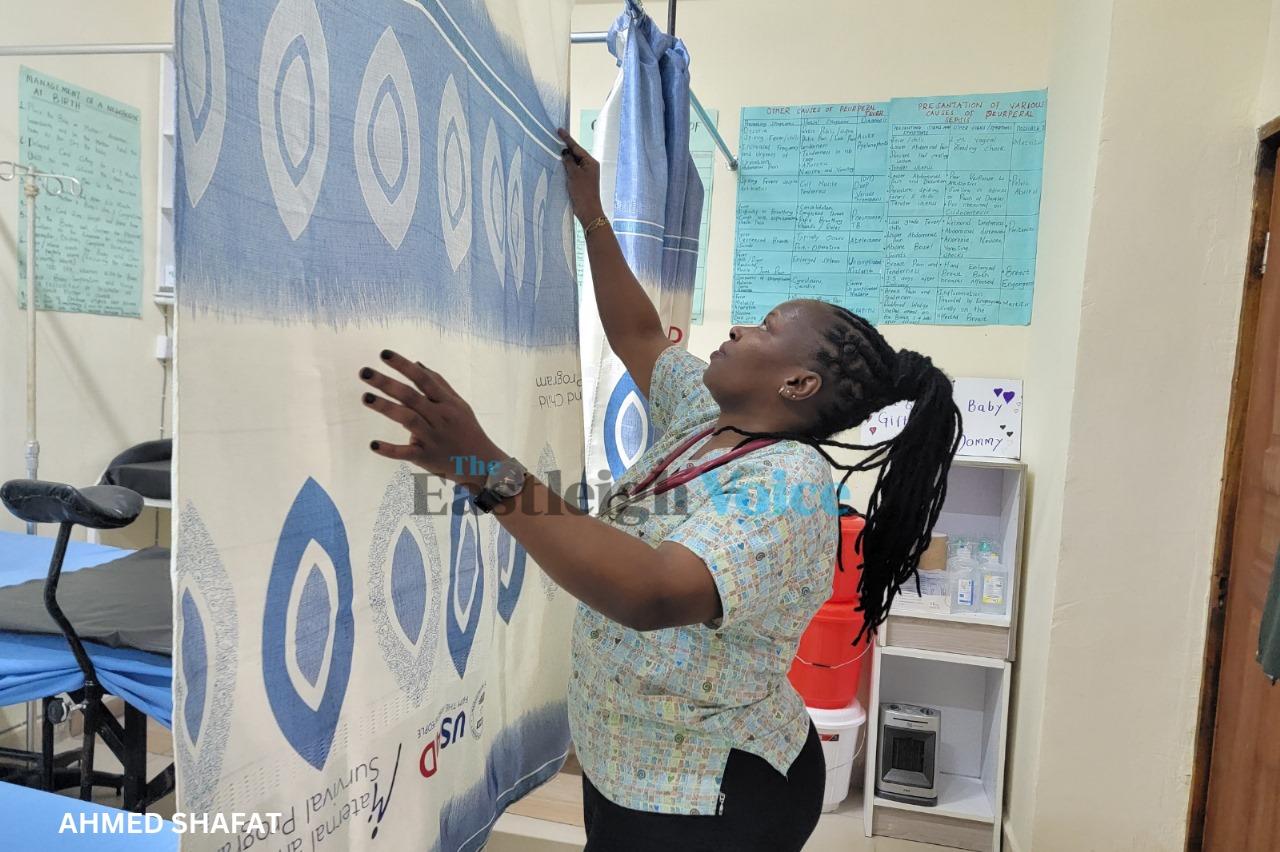FGM in the modern world: A woman's painful dilemma

FGM is predominantly performed on young girls between infancy and age 15, violating their human rights and perpetuating harmful gender norms and inequalities.
For centuries, female genital mutilation (FGM) has cast a dark shadow over many nations, with Africa bearing the heaviest burden. Despite global progress in the fight against this harmful practice, FGM persists in many communities, its roots deeply embedded in cultural traditions and social pressures.
Salma, not her real name, having spent a significant part of her life in Nairobi, she had hoped to shield her daughters from the harmful practice. Yet, the pressures from her community were relentless. Elders and peers insisted that her three daughters undergo the cut to avoid being cast away.
More To Read
- WHO warns of rising antimicrobial resistance in fungal infections
- Maasai community leads change as elders endorse fight against FGM and early marriage
- Kenya steps up border checks as Ethiopia confirms outbreak of Marburg Virus Disease
- Ending violence against women ‘a matter of dignity, equality and human rights’
- UN calls for legal safeguards for AI in healthcare
- Violence is a normal part of life for many young children: Study traces the mental health impacts
"I didn't want my children to face the stigma of not being circumcised when they came of age. It was heartbreaking. Despite living in a big city where you would think such practices are left behind, the cultural expectations followed us."
The practice, often justified by traditions, is believed to ensure a girl gets married and accepted within the community. However, the physical and psychological scars it leaves are profound and lasting.
"I know the risks, pain, the health complications during delivery, the bleeding but the fear of my daughters being shunned, treated as outcasts, was equally unbearable."
According to Salma, her children underwent the cut before turning 10 years old to allow for quick healing
Salma's dilemma is a reflection of the broader struggle many parents face in regions where FGM is still prevalent.
Rubbina Machoka, a nurse and midwife at Anisaa Hospital in California, Eastleigh, discussed the impact of FGM on childbirth in an interview with The Eastleigh Voice.
She highlighted the specialised care required for mothers who have undergone FGM due to complications such as haemorrhaging during delivery.
"We consider women who have undergone FGM as special mothers because they need more care," Machoka explained. "In these situations, we approach childbirth as a team because it is never a straightforward process."
Describing the severity of some cases she has encountered, Machoka recounted instances where mothers had been completely sewn. "We often have to surgically intervene to separate the stitched areas to facilitate childbirth, which is extremely painful and can lead to significant bleeding and even death," she added.
 Rubina Machoka, a nurse at Anisaa Medical Center in California Eastleigh, is preparing the maternity ward for patients. (Photo: Ahmed Shafat)
Rubina Machoka, a nurse at Anisaa Medical Center in California Eastleigh, is preparing the maternity ward for patients. (Photo: Ahmed Shafat)
Machoka highlighted the dire consequences when FGM is practised up to the urethra, leading to serious complications. She noted that while some mothers prefer to be re-stitched after delivery, others opt not to undergo the procedure again, which presents its challenges.
"There are instances where mothers conceal their FGM history until they are in labour, complicating our ability to manage their care effectively," Machoka noted. She stressed the importance of early disclosure and comprehensive counselling for mothers facing such challenges.
"Some mothers express relief once the stitched parts are separated," Machoka shared. "However, we have also seen cases where significant portions of the genitalia have been irreversibly altered."
Other Topics To Read
Machoka's appeal to women is to avoid subjecting their children to FGM, stressing the enduring and profound impacts it can have.
Medicalised FGM
Despite Kenya's progress in combating traditional FGM, the rise of medicalised FGM poses a serious challenge to these efforts.
The prevalence of FGM in Kenya stands at 15 per cent among girls and women aged 15 to 49, based on the 2022 Kenya Demographic & Health Survey.
Since Kenya banned FGM in 2011, the practice has shifted from public ceremonies to underground procedures in private homes and backroom clinics.
This medicalised form of FGM is defended by practitioners and communities as a "safer" way to uphold cultural traditions, despite the severe physical, psychological, and sexual health risks it poses to individuals, according to UNICEF.
UNICEF report highlights the growing prevalence of medicalised FGM in Egypt, Sudan, Guinea, and Kenya, jeopardising progress made in eliminating this harmful tradition.
Recognised by WHO as a violation of human rights, FGM continues to affect millions of girls and women globally, with significant financial implications for healthcare systems.
There are four main types of FGM: Type 1 involves the removal of the clitoral glans and prepuce; Type 2 includes the removal of the clitoral glans and labia minora; Type 3, known as infibulation, narrows the vaginal opening with repositioned labia; and Type 4 encompasses other harmful practices like pricking or cauterizing.
The practice of FGM has devastating immediate and long-term health consequences. Immediate risks include severe pain, excessive bleeding (haemorrhage), genital tissue swelling, fever, infections (e.g., tetanus), urinary problems, wound healing problems, injury to surrounding genital tissue, shock, and even death in extreme cases.
Long-term complications may include urinary problems (painful urination, urinary tract infections), vaginal problems (discharge, itching, bacterial vaginosis, and other infections), menstrual problems (painful menstruations, difficulty in passing menstrual blood, etc.), and formation of scar tissue and keloids.
Despite global efforts, more than 230 million girls and women alive today have undergone FGM in 30 countries across Africa, the Middle East, and Asia where the practice is prevalent. FGM is predominantly performed on young girls between infancy and age 15, violating their human rights and perpetuating harmful gender norms and inequalities.
Top Stories Today












































